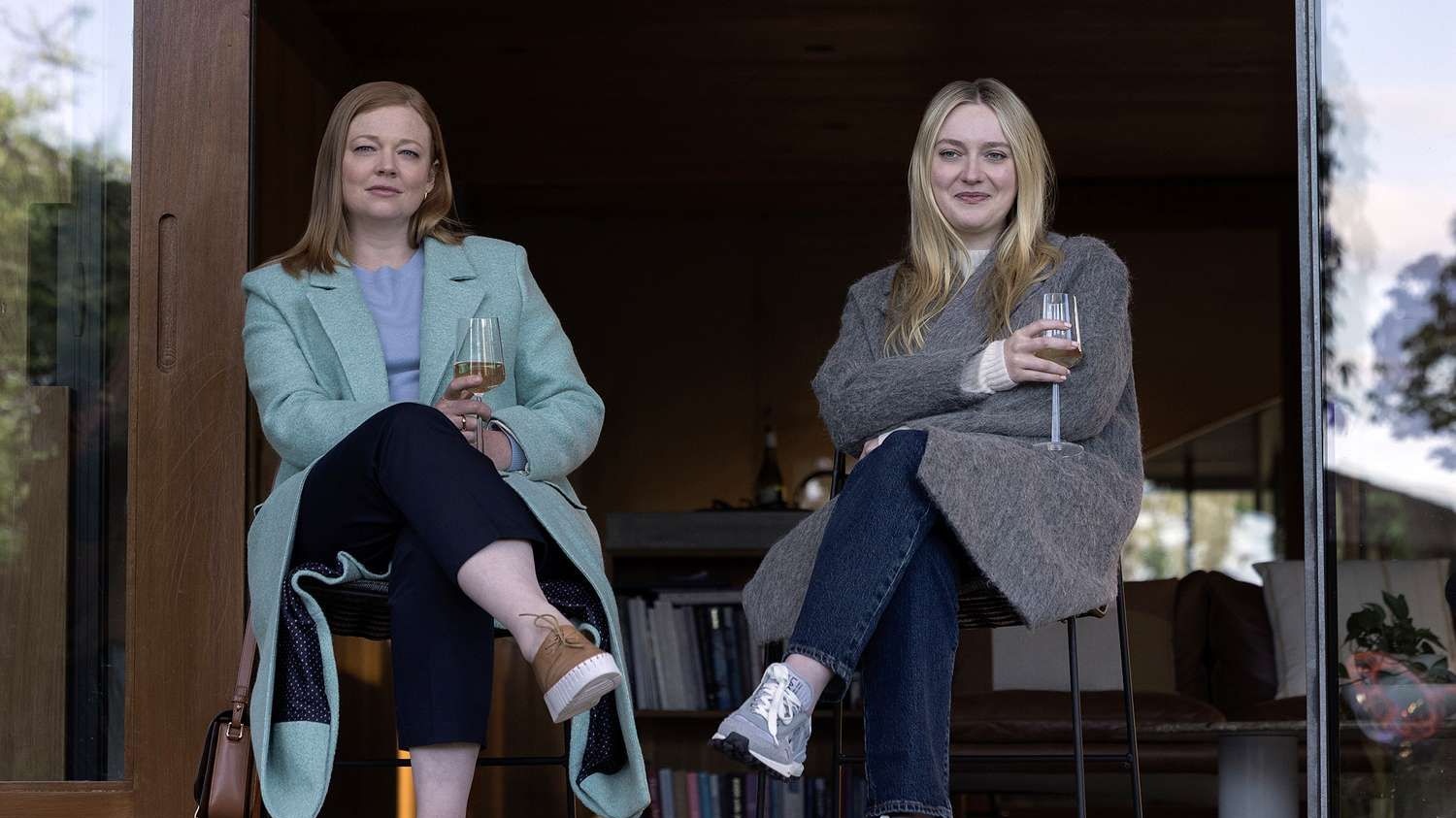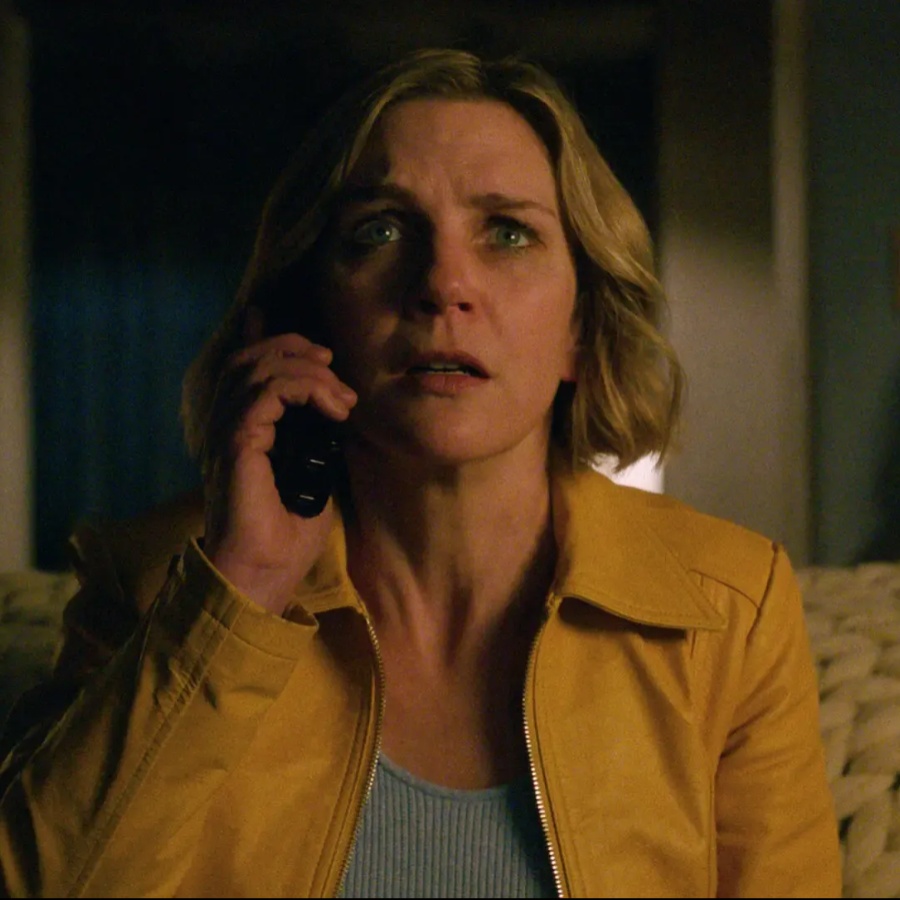I am going to begin by saying that my TV watching habits have changed dramatically since having children. After years of watching every kind of thrill and binge, I now actively avoid anything revolving around abductions and kidnappings or, quite frankly, anything dark and horrifying involving young kids. I don’t think I’m alone. Parenting is stressful enough, and if your mind, like mine, tends to go straight to the worst-case scenario, why turn to this sort of content in the 30-minute daily window you have to decompress?
Yet, like I’ve mentioned once, my husband continues to gravitate towards the dark and the twisted. This weekend, he tuned into All Her Fault, the new thriller series on JioHotstar that, within the first five minutes, dives straight into every parent’s nightmare: a playdate gone horribly wrong.
Based on the book by Andrea Mara (and inspired by an incident), the show opens with a very rich Chicago-based wealth manager, Marissa Irvine (played by Succession’s Sarah Snook), who goes to pick up her five-year-old son, Milo, from a playdate, only to realise that there wasn’t any playdate after all. It soon becomes clear that Milo has been kidnapped.
All Her Fault is like a trashy thriller that is too good to put down; each of its eight episodes ends on a cliffhanger. There are many twists and turns, often clumsily woven in, and the end comes pretty much out of left field. And there’s been much chatter online about its cheesy dialogues, the lack of pacing, the unrealistic homes, and the rich-mom tropes that this show falls back on. But for all its faults, what stood out for me were its truth bombs. Here, five moments from the show that have got moms everywhere nodding in empathy:
“I’m tired of being amazing. I don’t want to be amazing anymore”
The single sentence becomes the crux of the show and of modern motherhood. Jenny Kaminski (Dakota Fanning), a hardworking publishing executive, meets Marissa when they’re hiding out in the bathroom at a school event. The two forge a friendship over twinning in the same dress and dealing with the same dilemma. They are tired of the platitudes their husbands serve them, of doing it all at home and at work, and being told they can have it all if they really work for it.
“Of course, whatever you need. Just tell me what you want me to do”
In a flashback scene, Marissa, exhausted, asks her husband, Peter, to help with the baby who is struggling to sleep. On the surface, Peter's response seems supportive enough, but it goes on to illustrate how women are expected to take the lead, as if they alone come with an instruction manual on parenting. This adds yet another layer of responsibility, with the man often feigning incompetence or ignorance as a form of avoidance.
“I’m the default parent. You’re the substitute. Your time off is to do your own thing. And my time off is to grocery shop, to clean the house, to cook, to do laundry… So, I don’t actually have time off”
Jenny’s husband, Richie, elicits a visceral reaction in all the women I know (there are Reddit threads about it) with his unsupportive co-parenting and need to “tune out”. Richie’s serves as a counterpoint, driving home the invisible labour that often befalls the mother. While this generation’s fathers have stepped up, the mental load of parenting—-from doctor’s appointments and school assignments, to playdate coordination—are just some of million parenting tabs that stay open in women’s minds. When Richie constantly keeps calling his wife when she’s in a work meeting, Jenny apologises to her male colleagues: “My husband is in charge of our son, so little fires.” Flattery, too, is weaponised: “You’re better at it than I am” or its many variations.
“Parents with just one kid need to help more than other parents”
One kid or three. Stay-at-home mom or working mom. In 2025, we’re still judging. When it comes to parenting, we’re all guilty of believing our way is better. Jenny and Marissa are constantly side-eyed by SAHM and PTA rep Sarah Larsen for not being active participants in the school community. The subtext: their jobs are preventing them from being focused parents. It isn’t one-sided either. Jenny and Marissa are also condescending towards the community work that Sarah considers valuable, and let’s face it: someone often has to do it.
“Why didn’t you just check the number? You just check it, okay?”
Looking for someone to blame, Peter turns to Marissa in anger and accuses her of making a fatal mistake that (could have) led to Milo’s kidnapping. Ultimately, it’s all her fault. And the men are the bystanders. When the police question Jenny about checking the nanny’s references, Richie says to his wife, “I can’t believe you didn’t sense anything.” When the police ask him if he sensed if anything was off, he is dismissive. And it’s this guilt, both societal and self-imposed—that any slip-ups on their part could have far-reaching consequences—that drives mothers like Marissa and Jenny into a whirlpool of emotional exhaustion.







